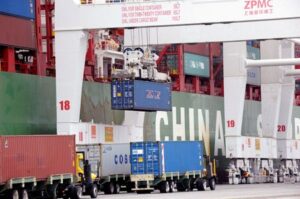By Aishwarya Nair
(Reuters) – U.S. union workers are finding more solid footing during contract negotiations with employers as a tight labor market allows employees to flex more bargaining power.
Airline pilots, railroad employees, dockworkers, and others have pushed for higher pay and better benefits, rebuffing offers from companies that in some contracts appeared significant.
The latest heated negotiations are taking place between parcel delivery giant United Parcel Service and the Teamsters Union. The two on Wednesday accused each other of walking away from negotiations over a new contract.
WHAT ARE UNIONS LOOKING FOR IN TALKS WITH BIG COMPANIES?
Tired of stagnant pay, high healthcare costs, scant sick time and uncertain scheduling, American union workers are seeking higher wages, better work-life balance and job upgrades as the pandemic made many of them rethink their priorities.
Late last year, U.S. freight railroad workers rejected a five-year contract that included a 24% wage increase, citing a lack of paid sick leave. Workers were angry after the deal was imposed by Congress and President Joe Biden. Unions later reached separate sick-pay agreements.
In January, factory workers at CNH Industrial agreed to a contract that offered wage increases and higher shift premium and other improvements.
WHY ARE U.S. UNIONS GROWING IN POWER?
Union workers are having a moment due to declining unemployment rates and a lack of skilled workforce, prompting companies to dish out better pay packages and benefits to prevent employees from leaving for greener pastures.
Companies in many industries are finding employees downright impossible to replace, particularly with the jobless rate just off 50-year lows.
Employees have been emboldened by a series of related events: soaring company profits, a renewed respect for essential workers and rekindled political will in Washington for labor unions.
WHAT ARE SOME NOTABLE UPCOMING CONTRACT NEGOTIATIONS?
The United Auto Workers’ (UAW) national contracts with Detroit automakers Stellantis NV, General Motors Co and Ford Motor Co are set to expire on Sept. 14.
Union leaders are ratcheting up pressure on the automakers for substantial changes to the current master contracts. The union wants an end to the current two-tier wage system under which new hires at the Detroit Three earn 25% less than UAW workers with five or more years on the job.
Among U.S. airlines, Southwest Airlines is yet to reach an agreement with its pilots union. Members of Southwest Airlines Pilots Association have voted in favor of authorizing a strike.
(Reporting by Aishwarya Nair in Bengaluru; Editing by Sriraj Kalluvila)





